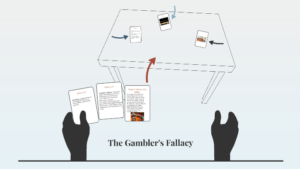Entertainment, especially in gaming and gambling, is often surrounded by
misconceptions about luck and probability. Players frequently believe that luck plays a more
significant role than it actually does, leading to the persistence of various myths. This article
will debunk some of these common myths and explore how they influence behavior,
particularly in decision-making processes during games.
A well-known myth is that luck follows certain patterns or streaks. For example, a player
might think that after a losing streak, they are “due” for a win. However, this is not how
probability works. Each event in games of chance, such as rolling dice or flipping a coin, is
independent of previous events. Whether one is playing online slots or participating in an
escape room challenge, such as those offered at başarı bet giriş, every event is dictated by
random probability, not by previous outcomes.
Myth 1: Luck Can Be Controlled
Many believe that luck is something that can be manipulated through rituals or specific
actions, such as wearing a lucky shirt or performing certain routines before a game. In
reality, probability is based on mathematical principles, not on superstition. This myth
persists because of the human tendency to seek patterns and meaning in random events.
People often recall the times when their rituals seemed to work and forget when they didn’t,
reinforcing this false belief.

gambling
Myth 2: The Gambler’s Fallacy
Another widespread misconception is the “gambler’s fallacy,” which assumes that past
outcomes influence future ones in random events. A classic example is thinking that if a coin
has landed on heads five times in a row, it’s more likely to land on tails the next time. This
belief is false because each flip is independent, and the odds remain the same regardless of
past outcomes. The same principle applies to any game of chance, whether in casinos or
interactive entertainment spaces.
In both cases, these myths can heavily influence player behavior. Believing in streaks or
rituals might make players act irrationally, increasing the risk of losses or frustration.
Understanding the reality of probability helps in making better, more informed decisions,
whether participating in gambling activities or strategy-based games like escape rooms.
The Influence of Myths on Decision-Making
These myths about luck and probability often lead players to act based on emotions
rather than logic. In gambling, this can result in chasing losses or betting more than
intended, hoping that a change in fortune is just around the corner. In other entertainment
settings, such as team-based games or challenges, these misconceptions might lead to
overconfidence or unwarranted pessimism. Recognizing the true role of probability in such
environments can foster a more enjoyable and balanced approach to gaming.
Ultimately, myths about luck and probability can have a significant impact on behavior.
By debunking these myths and embracing a realistic understanding of chance, players can
enhance their experiences and avoid common pitfalls. Whether it’s gambling or participating
in an escape room, success depends not on luck but on strategic thinking, careful planning,
and understanding the odds.







Henüz hiç yorum yapılmamış.
İlk yorumu yapan sen olmak istemez misin?